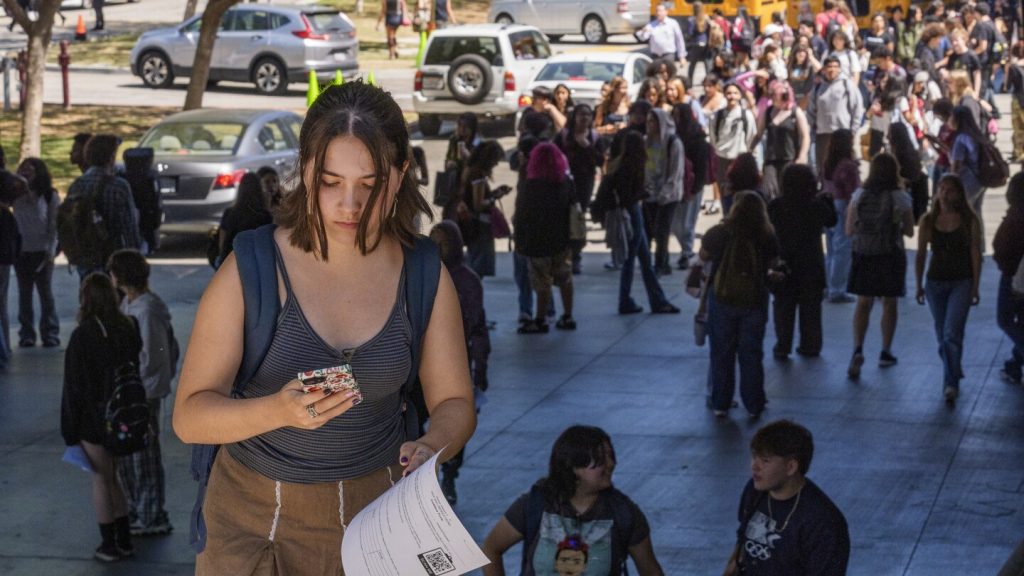California Governor Gavin Newsom signed a new law requiring school districts to create rules to restrict student smartphone use in an effort to minimize distractions in the classroom and address the mental health impacts of social media on children. This move makes California the latest state to try to curb student phone access, following similar laws in states like Florida, Louisiana, and Indiana. The law aims to help students focus on academics, social development, and the world around them, rather than on their screens. However, some critics argue that enforcing phone restrictions should not be the responsibility of teachers and that decisions on phone bans should be left up to individual districts or schools.
The law mandates that school districts must pass rules by July 1, 2026, to limit or ban students from using smartphones on campus or while under the supervision of school staff. Districts will be required to update their policies every five years after that. This initiative comes after Newsom signed a law in 2019 that allowed school districts to restrict student phone access. The governor’s decision to tackle this issue again was influenced by the U.S. surgeon general’s call for warning labels on social media platforms and their effects on youth. In response, Newsom sent letters to districts urging them to limit student device use on campus, coinciding with the Los Angeles Unified School District board’s vote to ban student phone use during the school day starting in January.
The bill introducing the new law was brought by Assemblymember Josh Hoover, a Republican representing Folsom, along with a bipartisan group of lawmakers who are parents themselves. Hoover’s own children attend a school where phones are restricted, highlighting the challenges of breaking the addictive nature of smartphones among students. While some parents have expressed concerns about being cut off from their children in emergency situations, the law still allows exceptions for emergencies. Proponents of school phone restrictions argue that having phones off during emergencies can prevent them from ringing and revealing a student’s location, especially in active shooter situations.
Supporters of school phone restrictions have reported positive outcomes, such as increased student engagement and improved social interactions, since implementing bans on student phone use. Teachers have observed a change in school culture, with students spending more time interacting with each other instead of being glued to their screens. Despite the growing reliance on technology as a learning tool, particularly since the COVID-19 pandemic, some teachers believe that enforcing phone restrictions can help students focus better on their classes and prevent them from feeling like they are missing out on social media activities. Overall, the implementation of smartphone restrictions in schools aims to prioritize academic achievement, safety, and social development among students.


